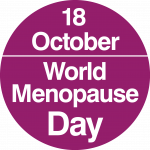
Lorna Collins reflects on a systematic review exploring the benefits of Hearing Voices and other self-help groups for people with auditory hallucinations.
[read the full story...]
Lorna Collins reflects on a systematic review exploring the benefits of Hearing Voices and other self-help groups for people with auditory hallucinations.
[read the full story...]
The paper sets out and examines the impact of a local project called Promote the Vote running in West Yorkshire.
[read the full story...]
In her latest blog, Francesca Zecchinato summarises findings from a recent pragmatic, partially randomised, patient preference trial on two forms of guided self-help for anxiety.
[read the full story...]
Sofiia Kornatska reviews a qualitative study on the importance of child-staff therapeutic relationship in the Children and Young People’s Secure Estate, which offers insights into the implementation of the SECURE STAIRS trauma-informed framework that has been commissioned by NHS England across these settings.
[read the full story...]
Lorna Staines summarises a recent study on predicting treatment-resistant psychosis, which suggests that future risk prediction efforts should seek to consider routinely collected data.
[read the full story...]
For the last in our World Menopause Day 2023 series, we are combining a paper and some recent case law, to think about some of the things that have been discussed this week through these blog posts.
[read the full story...]
In her debut blog, Gabrielle Williams reviews a US study on the safety and effectiveness of ketamine-assisted therapy (a digital intervention combining psychotherapy, journaling and ketamine) for moderate to severe anxiety and depression.
[read the full story...]
This is the second of three-blog posts to celebrate World Menopause Day 2023, Daisy Long looks at the social constructions of menopause based on a paper recently published in the Journal of Aging.
[read the full story...]
Today, 18th October 2023, is World Menopause Day. It’s the now annual discussion on the impact that menopause has for the individual in the workplace, in the family and in our communities.
[read the full story...]
Flo Martin explores a recent cohort study of Danish registry data that investigate whether women with a history of depression associated with using hormonal contraception were also at a higher risk of developing postpartum depression.
[read the full story...]